By Cam Delisle
In the wake of her breakthrough third album, Through The Wall, the experimental-R&B auteur reflects on a career-defining year.
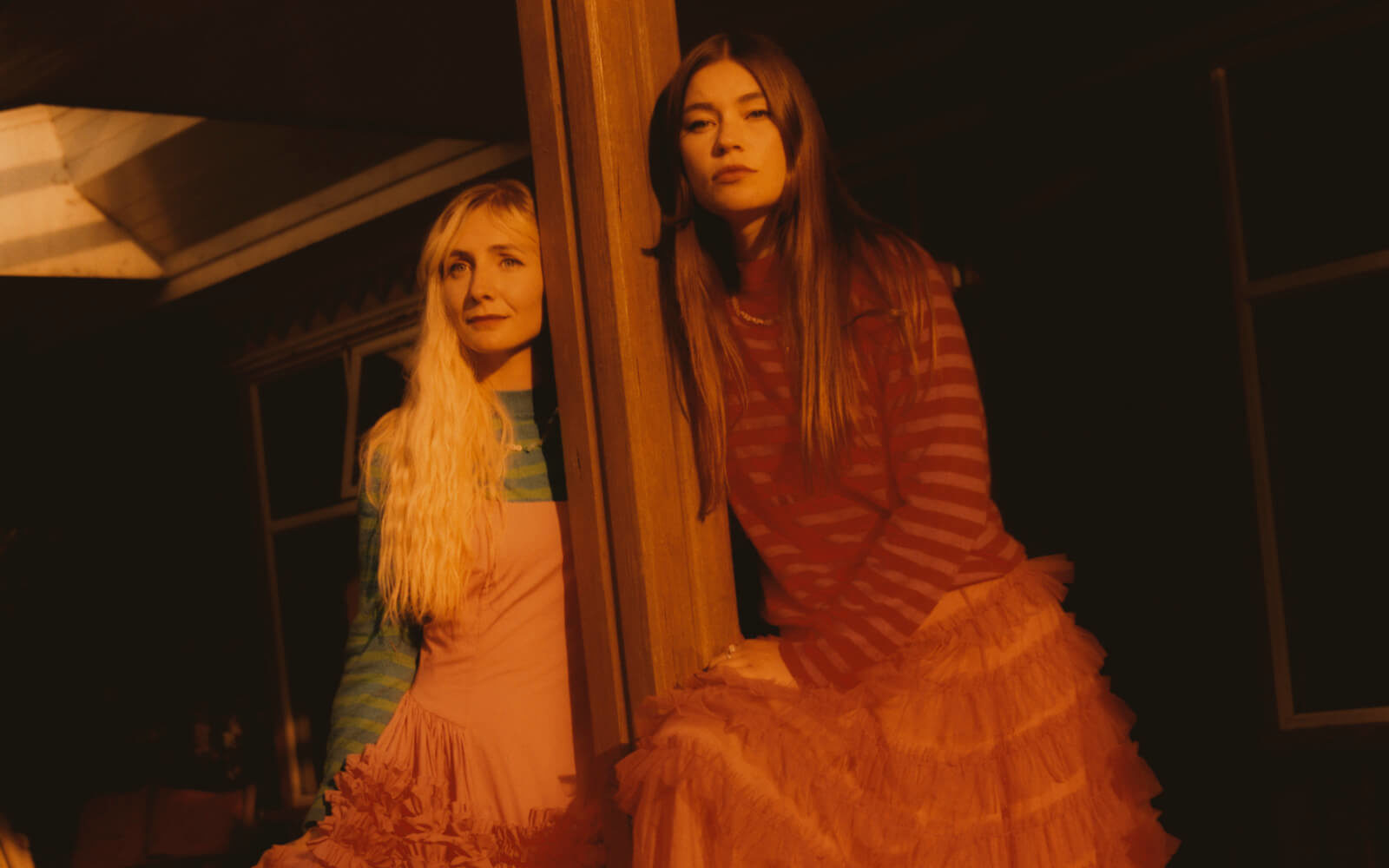
Rhian Teasdale holds her cell phone up high, arms extended, and spins in a circle. The Wedgewood Rooms, the venue her band, Wet Leg, is playing tonight in Portsmouth, England, whirls in a blur of navy and black and yellow behind her. “See?” There’s the stage where Teasdale and her bandmate, Hester Chambers, will perform later. There’s the crew, crouched over, setting up amps and speakers and instruments. There’s where the audience will be. There’s the bright lights, hanging parallel from two industrial ceiling beams.
Teasdale comes back into focus on the video call. She is smiling happily and her eyes, bright blue and framed by a fringe, are sparkling. The Wedge is the same venue where Teasdale attended her first concert, a show starring the English indie rockers Mystery Jets. Now she and Chambers will be playing to its sold out room on the last stop of their U.K. tour. Grinning, she marvels at the full-circle moment.
After this show, the Isle of Wight duo embark on a world tour, a sprawling outing that will take them everywhere from Australia to Canada through early next year. Teasdale is particularly excited to visit Japan and Reykjavik, Iceland—and excited about the fact that they get to go to these places just to play music, she says, a little awestruck. “It’s so funny, it’s so unexpected. And it has been, yeah, just such a whirlwind. We’ve just managed to somehow miraculously surround ourselves with the best team, the best little touring family. There’s quite a lot of exciting stuff in our calendar, it’s kind of hard to internalize. You can’t really process it, because everything has just happened so quickly,” she says.
Wet Leg had only just signed to Domino Recording Company, the independent label home to acts like Pavement, Sebadoh, and My Bloody Valentine, when their debut single “Chaise Longue” was released in June 2021. A prickly little ditty with deadpan vocals and minimal instrumentation, save for a simple bassline and scrappy guitar riff, “Chaise Longue” resonated immediately—and widely. It became the runaway hit of the summer, revered by Dave Grohl and Iggy Pop, and named among the best songs of the year by outlets from Rolling Stone to Vogue. Wet Leg soon found themselves ascending meteorically, playing packed festivals, selling out venues across the U.K. and the U.S., and profiled in the New York Times.
The “Chaise Longue” story goes that Teasdale had just moved back home from London and was staying with Chambers and her boyfriend, Joshua Mobaraki (who plays synthesizer and guitar with Wet Leg), sleeping on an old chaise longue that once belonged to Chambers’s grandparents. They were just messing around late one night, not trying to write anything. The track was supposed to sit in a folder on the computer called High Jams with a bunch of other silly songs they’d made together. But sometimes, the best stuff comes out of not trying so hard. “It’s like casting a net,” Teasdale says.
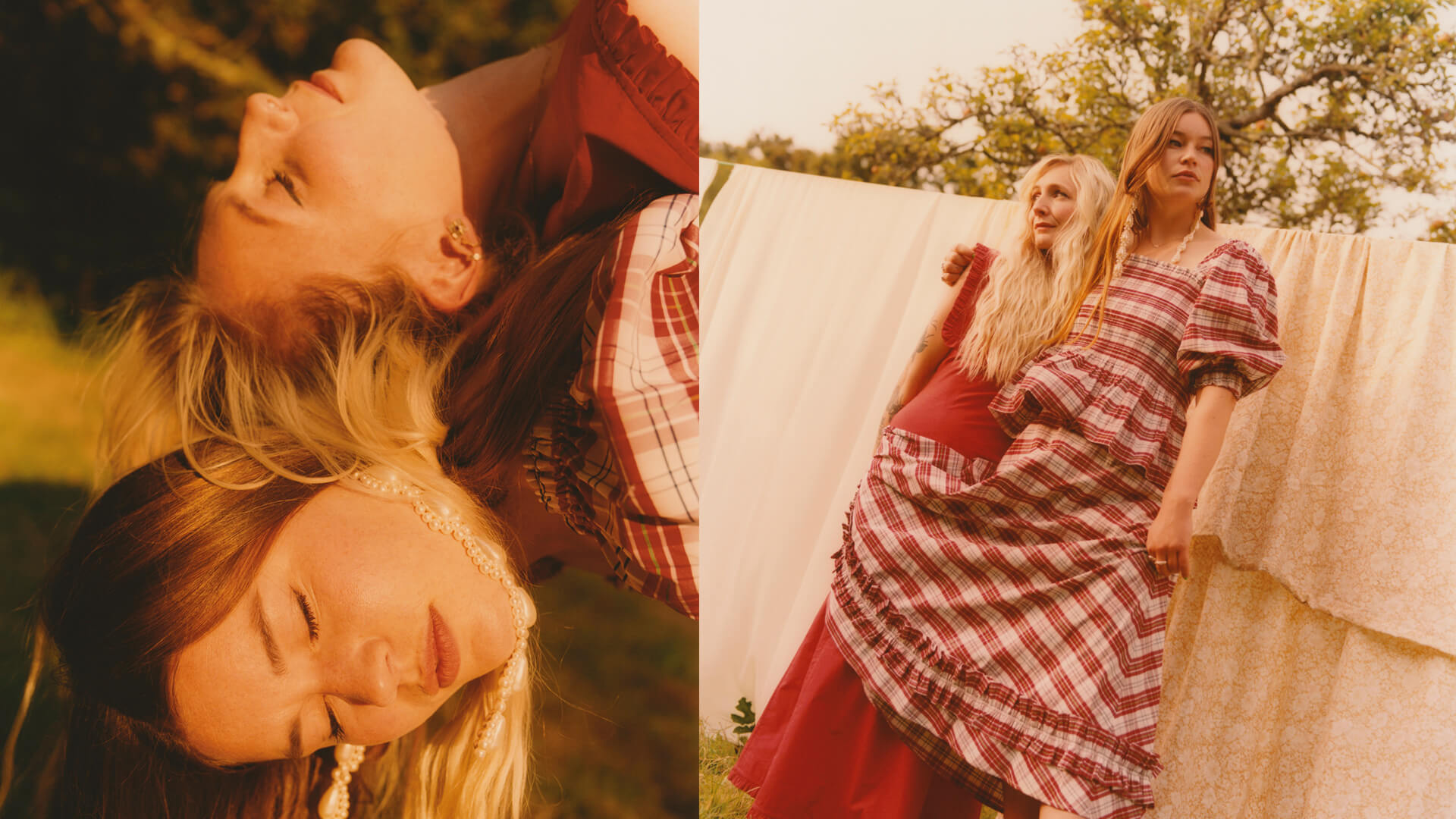
When Wet Leg’s self-titled debut was released on April 8, it more than lived up to the hype. It transcended it. An intoxicating collection of indie rock with bitingly smart lyrics and memorable hooks, it’s an album that promises to be stuck in your head for days. It’s a credit to the individual talents of Teasdale and Chambers, but also to the magical alchemy between them, something that exudes ease and authenticity and confidence. There’s no pretense. They don’t take themselves seriously enough for that. They’re having fun and you can feel it. It’s what makes Wet Leg so refreshing, and totally empowering.
With Teasdale’s deadpan, which also appears on other tracks like “Oh No” and “Too Late Now”—a departure from her pre-Wet Leg full-throated falsetto—and album production by Dan Carey, known for his work with post-punks Fontaines D.C., Wet Leg garnered a sweep of comparisons to other notable post-punk bands like Dry Cleaning. “I don’t know if it comes with the type of music that we’re playing or the practice that we’ve all put in and how comfortable we are on stage now,” Teasdale explains. “You kind of take on the character of the song. It wasn’t a conscious decision to get on the whole post-punk bandwagon, I suppose, because we’re not a post-punk band. But because of [“Chaise Longue”]—which I guess has some elements of it—people keep being, ‘oh, Wet Leg, a post-punk band,’ when we’re not, we’re just an indie rock band. Sometimes it’s just playing around and just being free and not setting ourselves any limitations.”
They did, however, listen to a lot of The Chats while recording. The Australian punks “kind of set the tone in a way,” Teasdale says. “They’re very cool, they’re very funny.” But Wet Leg didn’t set out to take specific cues from genres that audibly influence their sound, like new wave, slacker rock, and psychedelic rock. They’ve just always been interested in music—lots of different types of it—and it instinctively seeped through.
Teasdale and Chambers met at the Isle of Wight College when they were 17, bonding over artists like Devendra Banhart, Laura Marling, and Little Dragon. They also loved the Maccabees and Kings of Leon. They both played music: Teasdale had a folky piano-driven solo project, RHAIN, and Chambers had a band, Hester and Red Squirrel, where she finger-picked guitar over atmospheric soundscapes. But, after five years, Teasdale was fed up with RHAIN. She wasn’t getting anywhere with it and it wasn’t making her happy anymore. Chambers had accompanied her on a few shows one summer, though, which was a bright spot.
At the end of that summer, Teasdale and Chambers sang with a friend’s band at the End of the Road Festival, an indie-rock festival held in Wiltshire, England. Later that weekend, they were in the crowd watching IDLES. Teasdale recalls the conversation with Chambers: it’d been really nice playing together. Maybe they could play guitars—distorted guitars—and play more gigs together next summer. Maybe they could just alleviate all the pressure they’d put on themselves and just play for the fun of it. It’d be the loud, scuzzy antithesis of whatever they’d done before. “We were so used to taking up a very small space and making quiet, kind of gentle [music],” Teasdale says. “From the outset, we were like, let’s just write funny pop songs and play guitar.”
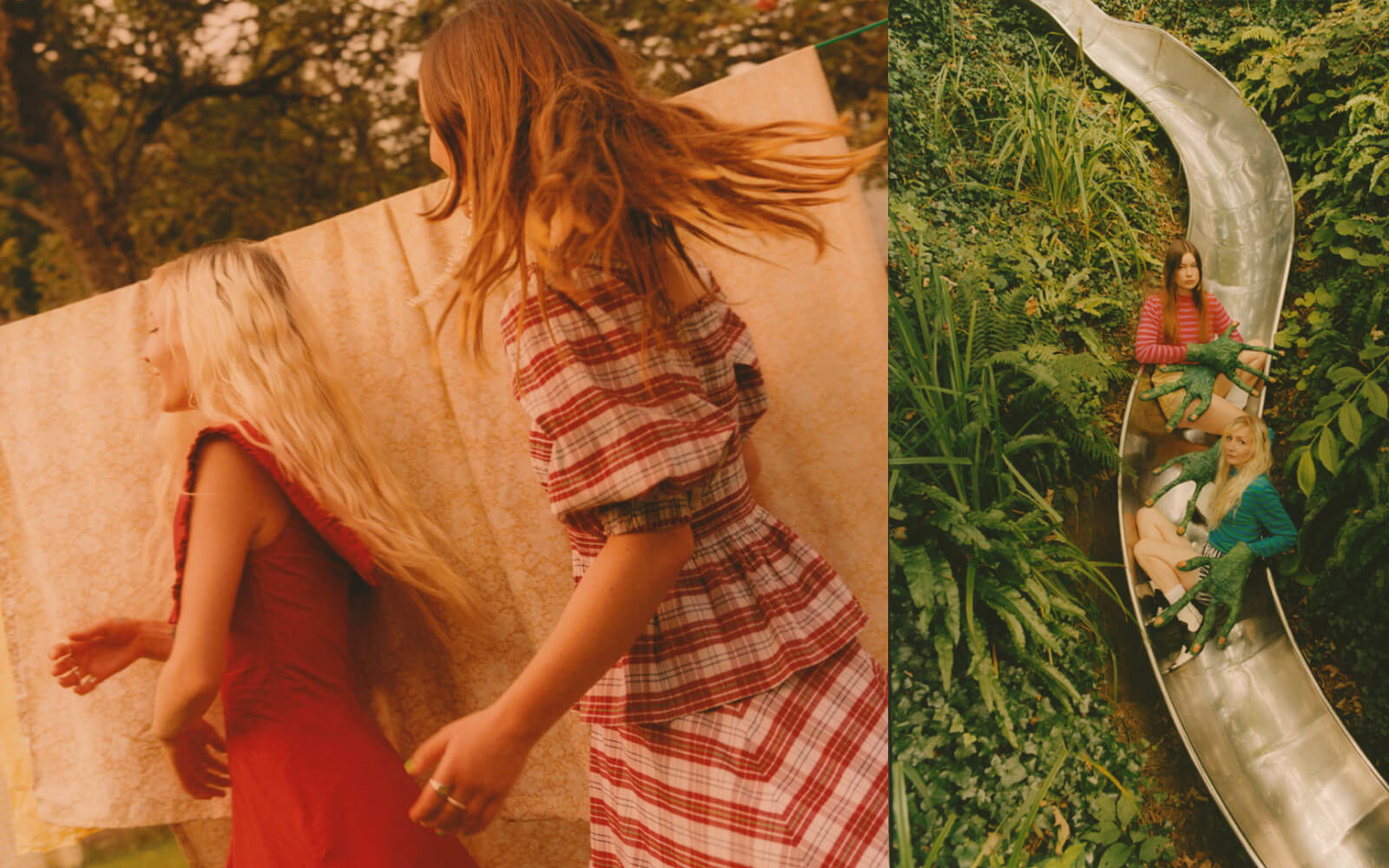
Growing up, Teasdale mostly listened to the radio and the U.K.’s Top 40. She became interested in indie rock at about 15 when she inherited iTunes accounts of her three older siblings that housed collections of Björk, the Doors, and PJ Harvey. The recorder was the first instrument she learned to play, compulsorily, at school. Teasdale giggles as she recounts a funny—and surprisingly recent—story: “Hester, actually, when we went to America last, her boyfriend got her a recorder for her birthday. And so she took her recorder with her in the dressing room, practicing. She’s like, ‘I’m so sorry, is it really annoying?’ And I was like, ‘No! Honestly, I just didn’t even hear it anymore.’ You know when you sleep through your alarm? It’s kind of like that. She was trying to play ‘Careless Whisper’ [by George Michael].”
Teasdale took up piano at 17. She had a few lessons, but found it boring. “I was only really interested in songwriting anyway, so I just kind of felt my way around it and used my ears,” she continues. “And then guitar I picked up, like, three years ago. And, again, I’m not very proficient at it, but it’s just such a useful instrument to write songs on—to write pop songs, in particular.”
The Isle of Wight, a small island off the southeastern coast of England, wasn’t home to many music venues when they were growing up, Teasdale says, making it difficult to see touring bands other than at the big eponymous music festival. Ferries are expensive, and you’d have to duck out of shows early to make sure you don’t miss the last sailing. At the same time, the relative isolation encouraged creativity from its local artists.
“We’d always be going to our friends’ gigs that would be a bit DIY,” Teasdale remembers. “The first gig that I ever played was—someone was doing up their house and they’d ripped out all the floors, just rubble, and the walls were bare and had no plasterboard on them or anything. And then they put little tea-lights in the brickwork and the bar was just a table with a sign saying ‘Bar’ on it, just cash in this little pot.” She adds, thoughtfully: “There are less gigs and opportunities to gig, so maybe that allows you more time to write, more space to write.”
On Wet Leg, Teasdale’s and Chambers’s songwriting is introspective and acidic, yet cheeky and jovial as they navigate self-doubt, doom-scrolling, heartbreak, and general disillusionment. It’s also deeply relatable, capturing the existential malaise that creeps in during your late twenties and early thirties. “It used to be so fun / Now everything just feels dumb / I wish I could care,” Teasdale sings on “I Don’t Wanna Go Out” to a moody riff that winks at David Bowie’s “The Man Who Sold The World.”
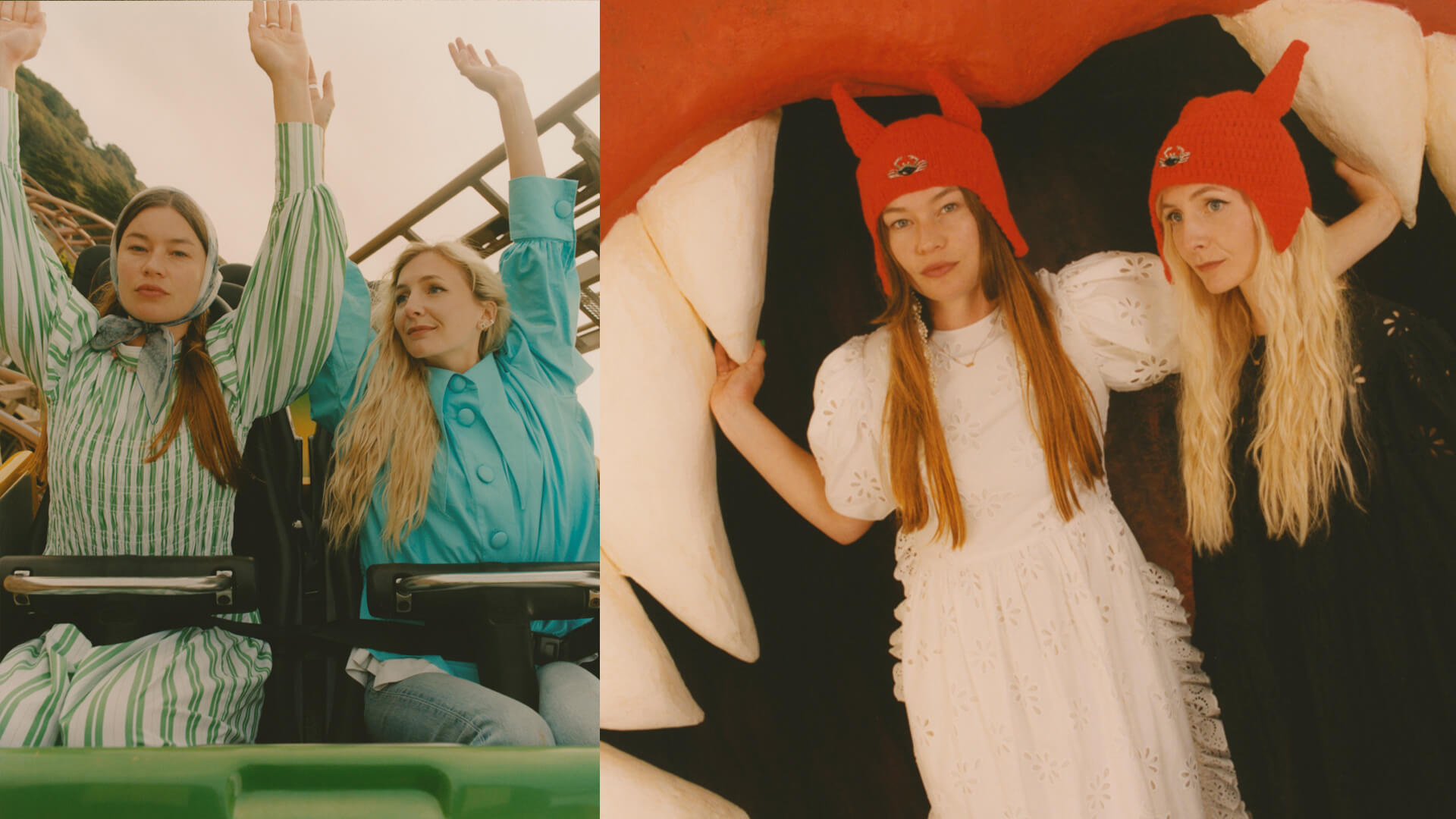
Relationships are approached with glorious bluntness, from “Loving You” (“I don’t wanna have to be friends / I don’t wanna have to pretend / I don’t wanna meet your girlfriend / I hope you choke on your girlfriend”) to “Wet Dream” (“What makes you think you’re good enough to think about me when you’re touching yourself?”). It’s paired with a dry humour that serves as an anchor on the record, and something important to Teasdale in terms of her outlook on life. “It’s sort of like the classic saying, it’s laugh or cry,” she says. “I think I have the tendency to choose laughing. And I think it’s maybe a built-in British thing to have a bit of a dark humour embedded.”
On album closer “Too Late Now,” with its building groove, dreamy shimmers and swirling breakdown, the duo mines the anxiousness and uncertainty of modern adulthood. Teasdale says the song, which was written “ages ago, before we were signed or anything,” was partly inspired by bumping into an old college friend at a local gas station who began telling her about his music project.
“I’d also worked a string of waitressing, service jobs and stuff whilst being like, ‘oh, but it’s okay because I do music,’ when I was doing the piano stuff. There’s a line that’s like, ‘now that we’ve all grown up, I guess we should be giving up,’ because what struck me was this guy, this friend from college, was kind of exactly the same as he was in college, but just a bit older—and there’s loads of people that are trying to do music and are still trying to do music, but are not really getting anywhere with it. So it was kind of reflecting on that at the time, I guess.” Teasdale pauses for a second. “People are so passionate and your music could be the best thing in the world, but if the stars don’t align—a lot of it is down to luck.”
She begins walking deeper into the Wedge, towards where the green room might be. The audio and video on the call glitch and freeze, and Teasdale becomes a pixelated blur. “Sorry,” she says, clear for a second, “let me find a quiet place.”
“Hello!” Teasdale cheerfully greets someone out of frame. She sits at the foot of a cement pillar and materializes in focus again as she shares why she thinks “Angelica” might be her favourite song on the album. “We recorded it in Hester and Joshua’s flat. We just recorded it in their living room, in lockdown, and Joshua produced it.” He’s a really good producer, too, she adds. “And it’s really fun to play live, as well, because of the harmonizing guitar part. We just thought it was really cute.”
The anti-party anthem describes the social angst that nags while attending a gathering Teasdale and Chambers don’t particularly want to be at. On the chorus, they sarcastically chant “good times, all the time.” It’s funny, defiant, relatable. And then there’s those guitars that sing, jingle jangling in perfect unison, adding technicolour texture to Wet Leg’s vibrant sonic palette. It’s another casual reminder of their musical brilliance, the real dexterity that represents the foundation underneath the snark.
“Yeah,” Teasdale nods, grinning. “It’s really fun to play that bit.”
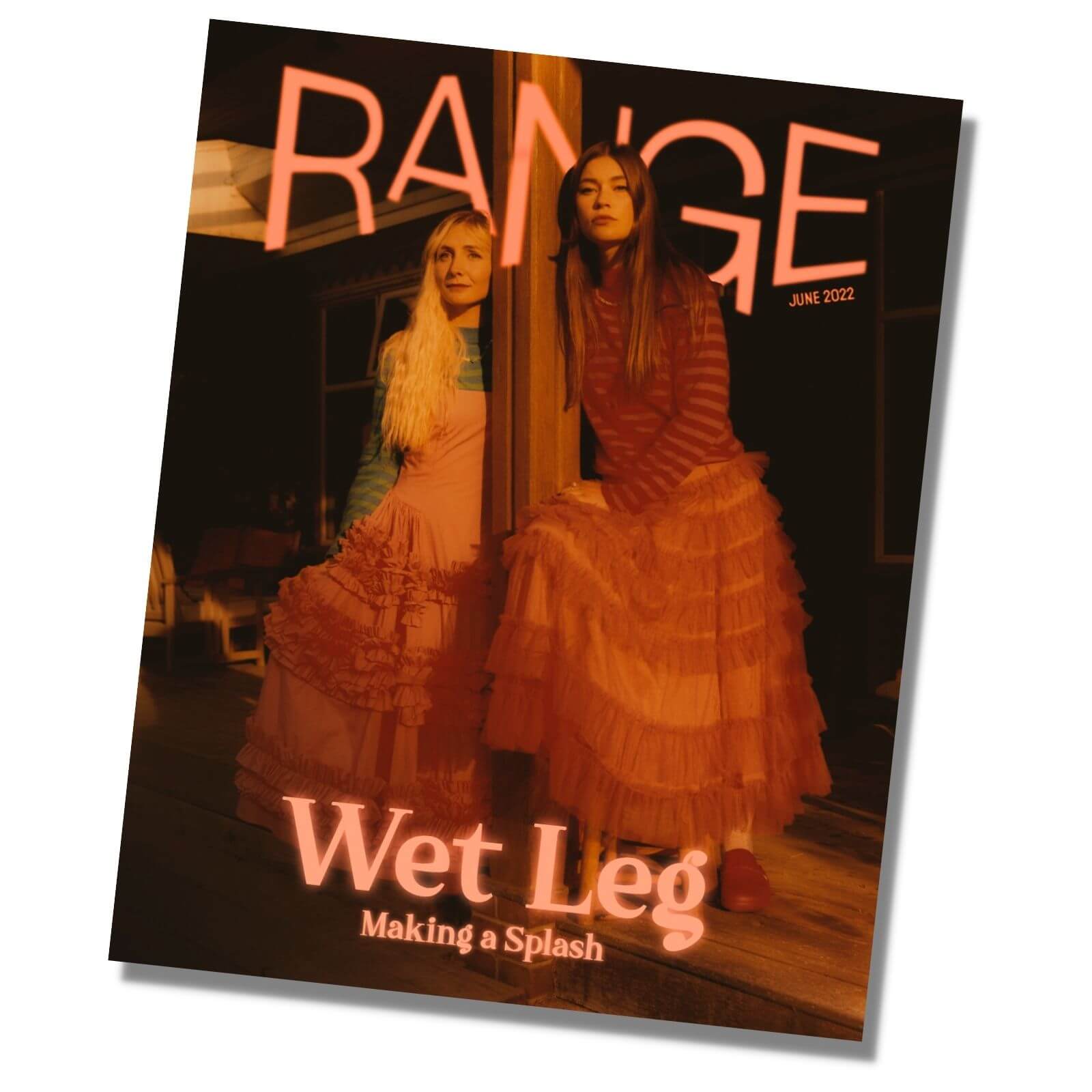
By Cam Delisle
In the wake of her breakthrough third album, Through The Wall, the experimental-R&B auteur reflects on a career-defining year.
By John Divney
Still processing their debut album, Vancouver’s latest art-rock unit proves collaboration is the new rebellion.
By Cam Delisle
The elusive Kevin Parker soundtracks the self-medicated search for bliss on his fifth album, Deadbeat.